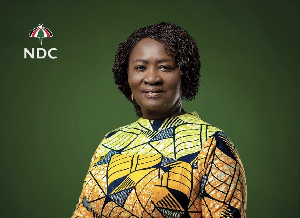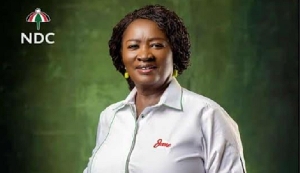Ghana's High Commissioner to the United Kingdom, H.E. Isaac Osei, contributing to a debate in London on ''Respect for Human Rights is Essential to Economic Development'' explained that Ghana in the last five years has experienced a deepening of democratic process which in turn has led to good governance and a substantial progress in economic development.
Political and civil liberties, he emphasised, were essential to good governance which in turn underpined the economic development process. This in the High Commissioner's exposition, were not only participatory but have transparency and accountability as their pillars. With this premise, the High Commissioner, whose views were expressed at a debate organised by The Economist magazine and The London School of Economics and Political Science, said, ''No Ghanaian has to be told that an accountable government which is committed to respecting the political, civil, economic, social and cultural rights of its people, underpinned by the rule of law is a sine qua non for economic development.''
He praised the policies initiated by the post-independent Nkrumah government in the 1950s and '60s which led to high investments in education, health and social infrastructure in a free country which cherished respect for human rights.The result was a Ghana that boomed with industries and production of goods and services for domestic and foreign markets by a healthy and educated work force. The decline of that epoch was not by accident since Nkrumah in the mid 1960s had tightened his grip on power and human rights abuses had set in.Investments fell and the economy suffered.If economic decline was not by accident at that time, Ghana's return to multi-party democracy and full rights (of political, social, economic) from 1992 to present showed in the positive enjoyment of rights whose effects in the economy from 1992 to 2005 for instance, grew at 4.5% and currently more.
There have been many other indicators which had brought the country international respect and hope for its future.
In further defence of respect for human rights and effects on economic development, Mr. Isaac Osei explained that Ghana's Poverty Reduction Strategy has led to substanial investment in education and health and rural infrastructure such as feeder roads, rural water schemes, Electricity provision and others. Ghana has also implemented a 'free compulsory universal basic education'. Already policies are showing results with enrolment rate rise and high levels of female enrolment.
The High Commissioner side of the motion, supported in a supplementary argument by Alex Singleton, Director of Oxfam's Campaigns and Policy Division, eventually won.
As with debates, the other side did not agree to all that the High Commissioner had to say. Shujie Yao, executive director of the Chinese Economic Association and professor and chair of economics at Middlex University and Alex Singleton, President of The Globalisation Institute cited examples from Asia and other parts of the world where absence of human rights had still led to economic development. While Singleton agreed that human rights was important in development, it was more a means and not an end in itself. But Yao was robust and even questioned the basis of these rights and asked in a cynical way: whose rights are these anyway? The rights are European-centric and he found it difficult, he admitted, to understand why certain rights should be imposed on the Chinese people; rights which may not be in the traditional and cultural interest of the people.
Even though Yao's analysis was intellectually stimulating, some, at least one student, made bold to say, was scary.












